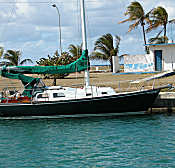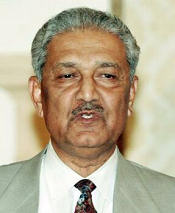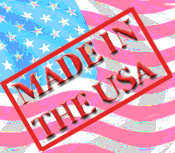
ABOVE: Marina Hemingway, Cuba
Back in November 2008, Export Law Blog reported on the Federal Government’s indefatigable campaign to bring to justice Michele Geslin and Peter Goldsmith who had organized a sailboat regatta between Key West and Cuba. The story wondered why the organizers were hunted down and fined by the Bureau of Industry and Security (“BIS”) while the skippers of the boats were allowed to sail off into the sunset without repercussions.
Well, it appears that at least one skipper, Wayne LaFleur, did feel the bitter lash of BIS. Two weeks ago, BIS issued a Final Decision and Order fining LaFleur $8,000 for his export of his sailboat to Cuba in connection with the regatta. The order does admit that none of the other skippers were penalized and provides no explanation for the agency’s decision to go only after LaFleur.
The order also doesn’t clearly detail what defenses, if any, LaFleur had to the BIS charges other than LaFleur’s claim that he had received permission from the Coast Guard to travel to Cuba. BIS’s response to this defense was as unhelpful as it was Kafkaesque: it’s not BIS’s fault if the Coast Guard doesn’t coordinate with us and gives you permission to do something illegal.
Significantly the Coast Guard Administrative Law Judge (“ALJ”) who heard the BIS case and issued a Recommended Decision and Order made absolutely no mention of LaFleur’s defense that the Coast Guard gave LaFleur permission to sail into Cuban waters. No doubt admitting the Coast Guard’s mistake would have put the ALJ in an uncomfortable position.
At the time of the regatta, the Coast Guard had established a “security zone” consisting of the U.S.-territorial waters off the coast of Florida. For a vessel the size of LaFleur’s, departure from the “security zone” and entry into Cuban waters merely required the the approval of the Captain of the Port, i.e., the commanding official of the Coast Guard for the sector involved. Not until after the regatta, which took place in May 2003, did the Coast Guard’s rules require that such permission could only be given by the Coast Guard if the requesting vessel had a license from BIS to export the vessel to Cuba. The final rule establishing the BIS license requirement was adopted by the Coast Guard on July 8, 2004, more than a year after the regatta took place.
Perhaps the Coast Guard, which improperly authorized the trip to Cuba without all proper governmental authorizations, should be held accountable for aiding and abetting the export, just as were the organizers of the regatta. But the Coast Guard ALJ, who must have been aware of all this background, obviously had no desire to go there.

 Posted by
Posted by  Category:
Category: 

 The National Research Council, a group comprised of representatives of the National Academy of Sciences, the National Academy of Engineering, and the Institute of Medicine, recently released a
The National Research Council, a group comprised of representatives of the National Academy of Sciences, the National Academy of Engineering, and the Institute of Medicine, recently released a  On January 10, FBI agents arrested William Chi-Wai Tsu, a U.S. citizen and resident of California. Tsu, who was born in Shanghai, was detained on charges that he had illegally exported electronic components to China without first obtaining required licenses from the Bureau of Industry and Security (“BIS”). An extraordinarily detailed
On January 10, FBI agents arrested William Chi-Wai Tsu, a U.S. citizen and resident of California. Tsu, who was born in Shanghai, was detained on charges that he had illegally exported electronic components to China without first obtaining required licenses from the Bureau of Industry and Security (“BIS”). An extraordinarily detailed 
 For everyone who has been complaining that export controls imposed by the Bureau of Industry and Security (“BIS”) have meant that U.S. manufacturers aren’t on a level playing field with foreign competitors, it’s now time to put your money, or at least your comments, where your mouth is. BIS has just
For everyone who has been complaining that export controls imposed by the Bureau of Industry and Security (“BIS”) have meant that U.S. manufacturers aren’t on a level playing field with foreign competitors, it’s now time to put your money, or at least your comments, where your mouth is. BIS has just 

